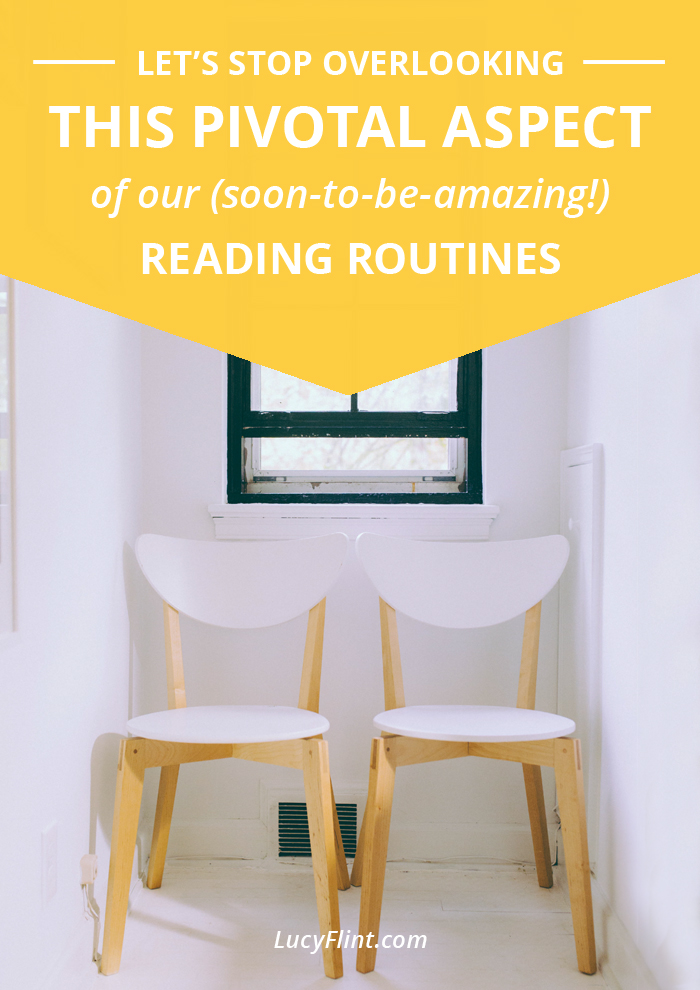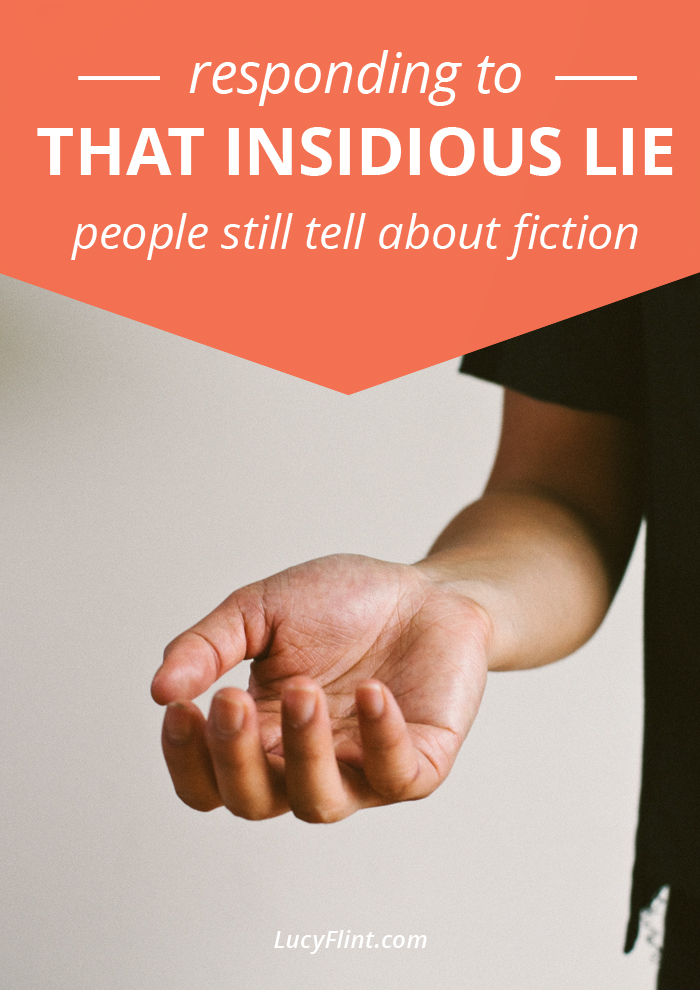Here's How I'm Fixing an Old, Incredibly Bad Writing Strategy
/You know that feeling of being sore in muscles you didn't know you had? It's kinda weird, but at the same time, it gives you a bigger sense of yourself, right?
You see yourself a bit more clearly (if with surprise), and at the same time, you're a little astonished to realize that you're more complex than you realized.
... Or maybe I'm the only one who feels shocked like that after an unusual workout. ;)
That's the same feeling I've been getting as I keep applying The Artist's Way to my creativity and my writing life.
Only, it isn't just creative muscles that are waking up. It's creative needs.
Again and again, Julia Cameron's essays and tasks are introducing me to needs that I didn't realize I had.
Or even needs I'd just miscategorized. Things that I vaguely knew were "important" when I could get to them, but ... maybe I could also just shrug them off indefinitely.
But that's all changing.
As I settle into Cameron's way of thinking, as I journal about these new insights, I'm gaining a broader, more accurate sense of what my needs are as an artist. As well as what it takes to meet those needs.
Honestly? It's been pretty dang startling.
Super exciting. But also startling.
And so, as I'm repairing my work habits and settling into a fresh work routine after the craziness of this summer, I'm really taking into account the things that Cameron urges in her book.
In other words: I'm breaking my "let's shrug it off" habit.
No more shrugging. No more dismissing.
Instead I'm seizing this lovely back-to-school vibe that's in the air (can you feel it?) and I'm designing my work space and work routines with all these needs in mind.
If I don't set up my schedule with time in it for the creative nurturing I need on a regular basis (time refilling the well and writing morning pages, as well as time for the writing itself), it's just not going to happen.
And that's simply not an option for me anymore.
(Pardon me while I sing a quick fight song, and do a few high kicks.)
Ahem.
Here's the scary thing. Here's what is so important for you, for me, and for all of us who want to work with integrity and creativity.
Preserving the time for this kind of work, preserving the energy and the ability to focus—it takes effort!
Showing up for your creative self on a regular basis and taking care of all these legitimate and vital needs:
It's delicious and exciting and exactly what I want to be doing.
But it also means that, to clear that space, I'll need to say no to some other stuff.
Feel where I'm going with this?
Because, spoiler alert: I do not (yet) have a clone.
I would love to have a second Lucy running around here, who could take care of all the out-and-about stuff, who could buzz around and meet friends for coffee all day, and take care of everyone's needs and preferences—
While I just focus in on becoming the artist and maker that I so desperately want to be.
The clone thing hasn't worked out yet.
So until that mind-boggling day, there's just me.
And I can't do everything.
Throughout The Artist's Way, Cameron spotlights helpful quotes from other artists in the margins of the book. And one of my favorites was this one:
"Saying no can be the ultimate self-care."
— Claudia Black
Whoa. I just sat and stared at that one.
Here's what I'm realizing. Saying no to other people is super hard for me.
Really really hard.
I used to think that I wasn't a "people pleaser." I'm pretty quiet around others and tend to keep to myself and sing little introvert songs to quiet my nerves.
And yet.
It's only recently that I'm seeing how much I want everyone to like me. I fall into this scary habit of trying to make sure that I don't disappoint anyone.
No matter how bad the timing is, no matter how unrealistic the expectation: It's really stinking hard for me to turn people down.
And in The Artist's Way, Cameron reminds us that we need to know how to say no to other people.
Why? To protect your art. To preserve space for all that thinking, dreaming, brewing, sketching. Your time. Your energy.
She warns against letting the wants and requests of others drown your ability to work on your creativity.
She's not being unrealistic or horrible with this, by the way. She is not saying we need to let other people wither without us during crises.
Instead, she's pointing out that there will always be opportunities for us to do other things—seemingly noble ones, in fact—instead of our work.
And it will be easier to show up for other people than to show up for ourselves.
And I don't know about you, but that is completely and terrifyingly true of me.
As I've wrestled with this, here's what I've realized:
The hardest person to turn down is myself.
And I'm not just talking about the times when I want to wander off and not work.
The hardest thing is: Saying no to a version of myself that I simply cannot be if I also want to write amazing books.
The hardest "no" that I say is when I say, No, Lucy, you're not going to be everyone's favorite person because you're not the utterly reliable, always-there-for-everyone-no-matter-what person anymore.
You're not going to be the one who steps up and pitches in every time someone else has a project going on.
You're not going to be the person everyone thinks of when they want a helping hand.
You are not constantly available. Your schedule is not endlessly flexible.
You can't keep everyone happy all the time. You can't keep the people around you 100% disappointment free.
You can't do those things and still write at the level at which you most want to write.
Seriously, friends: This is a really hard thing for me.
And guess what. When I do say no to something—an event, an opportunity, a low-grade preference of someone else's—there are other people who can step up.
Other people who are excited and committed to the event. Other people in the right place to take advantage of the opportunity. Other people who are well-positioned to fill the need.
I've seen it happen time and time again. And re-learned the truth: this whole thing's success did not depend on me. It's okay. I can say no.
So, the very hard truth of it is, I'm not actually leaving people out to dry. That's not the main difficulty.
The real trouble is, I have to give up this vision of being a person who keeps everyone happy all the time. The person who never disappoints. Who always has time for everyone.
That is what is so tough for me.
I want everyone to be glad I showed up. I want to swoop in and make everything better, for everyone, all the time.
Fantastic. Nice idea.
... Doesn't so much lead to good novels though.
(Because I've tried. It is an incredibly bad writing strategy.)
Not to sound too lofty, but: I am convinced that my biggest service to the world isn't through my being everyone's best friend.
It isn't through helping everyone around me when they'd like some slight assistance. It isn't through making everyone's life easier.
My biggest service is going to come through writing the best dang novels I can muster. It is going to come through my craft, my stories.
And to write them, I need to feed my artistic side consistently.
I need to protect the time it takes to do the work. To give as much as I want to give in my novels, I have to take relentless, consistent, compassionate care of myself.
I have to say no—to others and to the crazy super-human ideas I have about myself—as an act of self-care.
I need to say a lot of noes to a lot of different things (and different versions of always-nice Lucy) in order to be available to the people I most want to assist.
And part of that group is my future readers. The kids who will fall in love with this trilogy.
I want to be there for them. I want to drop everything else and show up for those readers.
I want to do whatever it takes, so that my books can be there in a pinch for them. I want to bring refreshment into hard places through my novels. I want to help other people put their oxygen masks on.
To do that, I have to find my own mask. Pull it toward me and put it over my head. Pull the little tab thingies to tighten it. Get it on straight. And breathe.
I have to take very good care of myself. So that I can serve through writing.
How about you, my lionhearted friend? Are there some commitments that have somehow snagged you, that you really don't belong to? That you don't truly need to participate in?
Can you do the amazing, daring, self-caring thing, and free yourself with a kind but firm "no"?
Where is saying no the best kind of self-care for you? And where do you, like me, have to say the hardest noes to yourself?
We've gotta learn how to do this, my friends. Our future readers are counting on us.
















